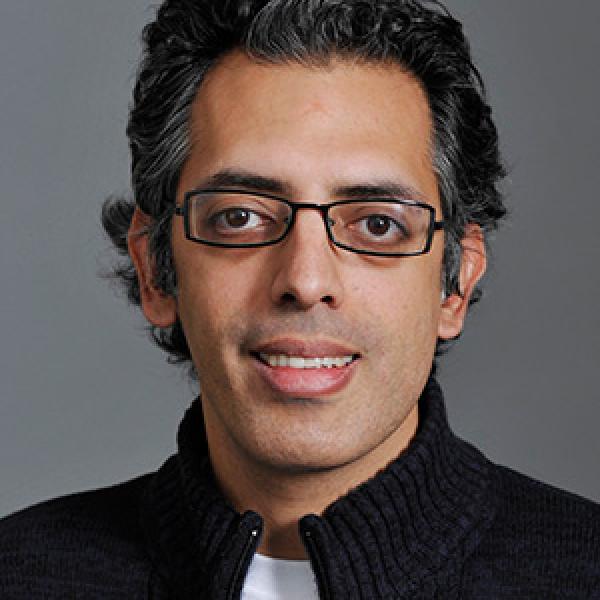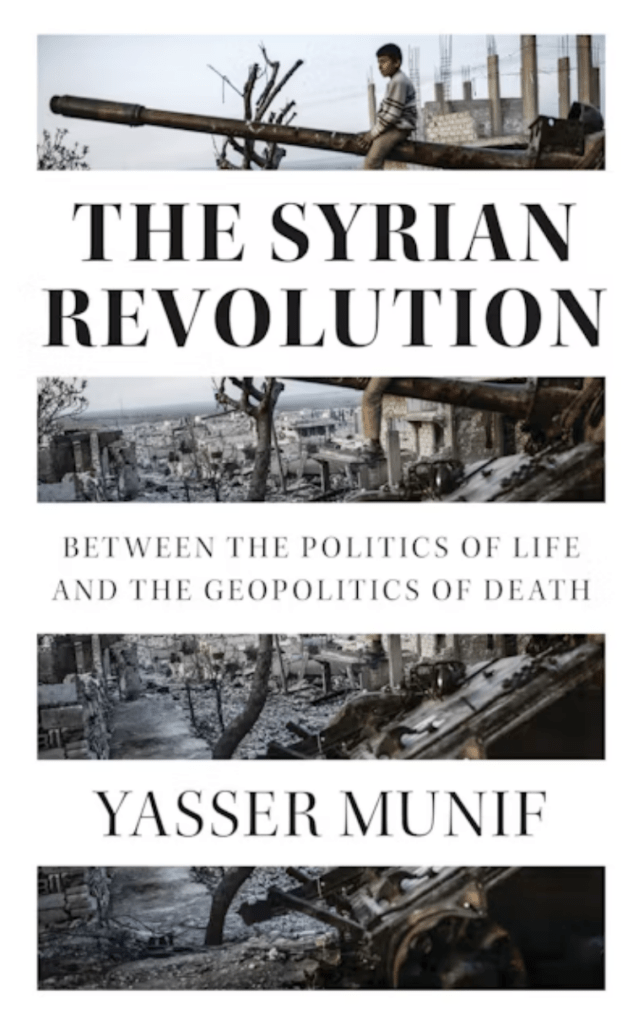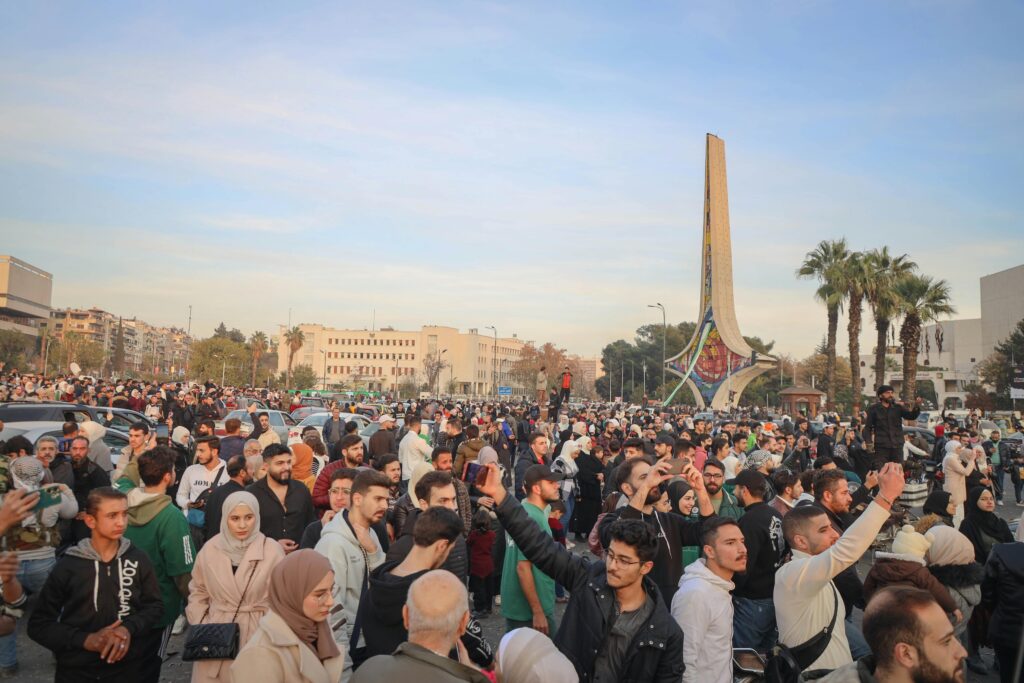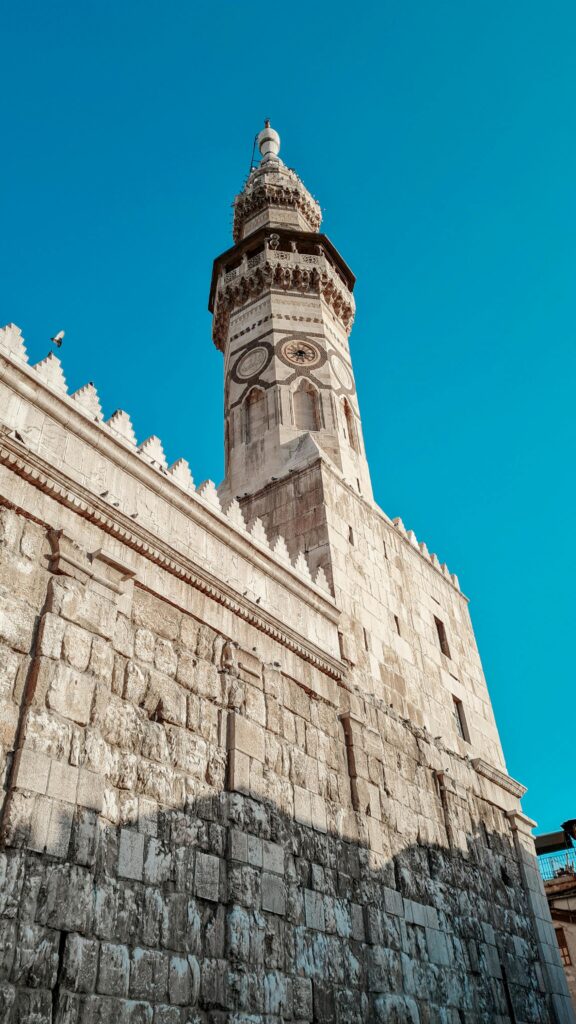Listen to Syrians, It’s Their Home, Says Institute’s Munif
When watching coverage of Syria’s uprising and the overthrow on December 8 of its longtime and brutal president, Bashar al-Assad, there is often something missing, says Marlboro Institute for Liberal Arts & Interdisciplinary Studies Associate Professor Yasser Munif.
“We miss a lot by focusing on the macro and geopolitics. I think people are still pushing for that geopolitical perspective, and don’t often hear enough from the voices of Syria,” said Munif, who lived in Syria for many years. “Basically, [media coverage presents] it like a game of chess, about different countries and their interests.”

Munif said the discussion should not be about what Iran, Israel, Russia, Turkey, and Saudi Arabia want.
“People who don’t listen to Syrian voices have a hard time understanding the [recent events],” said Munif. “People think about conspiracies. It must be Turkey, or Saudi Arabia. But without monumental support [from Syrians] for ending [Basher] al-Assad’s regime, it wouldn’t have happened.”
Munif feels the toppling of Assad is the culmination of the Syrian uprising of 2011 that started as a peaceful revolt and became militarized.
“People were just fed up and wanted Assad to go. He’s been brutal. He’s been dividing the country,” said Munif. “Hundreds of thousands were killed, and many became refugees and are displaced. The current economic condition is horrific. Inflation is through the roof. He had very little support in the past several years.”
He said HTS, the rebel force that forced Assad’s regime out, wants to govern and listen to Syrians. He pointed to HTS’ liberation of one city after the next. If HTS felt they were in enemy territory, they’d stay in those cities, instead of going on to free the next city. They felt they could leave because they knew that Syrians supported them and wouldn’t let Assad return. HTS also has experience in governing in liberated areas for multiple years.
In his book, The Syrian Revolution: Between the Politics of Life and the Geopolitics of Death, Munif implores people to listen to Syrian voices. He said the main point of the book was to push back against the focus on geopolitics such as proxy wars between other nations.

“I think it was bit pessimistic in the end regarding the revolution. No one was predicting the fall of Assad,” said Munif. “The point of the book was to advocate for micropolitics [on the ground level], not politics above like geopolitics. Geopolitics [doesn’t] raise people, it silences them. The book was to push for a different way to look at what was happening in Syria.”
He said that includes examining the prison system.
“It’s not easy to write about prisons and torture. I had nightmares for months and months. But I think it’s important to have that story out and for people to know about it,” said Munif. “[New leaders] are not going to recreate Assad’s incarceration state. HTS’ leader has said the infamous prison nicknamed ‘the slaughterhouse’ is going to be turned into a museum.”
Munif said being aware about the prison system isn’t simply seeing footage of political dissidents being freed, but also the structural history of the ways Assad, and his father before him, used the prison system to silence.
“Some called Syria a kingdom of silence. I don’t know if people understand the prison system was a main pillar of the regime and the things happening in the prison,” said Munif. “In the prison, you were not supposed to see the prison guards and were supposed to always look down. If the guards saw you look up, there was a good chance you would be killed. You were not supposed to cough or you would be killed, on and on and on.”
According to Human Rights Watch, Assad’s government committed countless atrocities, crimes against humanity, and other abuses during his 24-year presidency. These include widespread and systematic arbitrary arrests, torture, enforced disappearances and deaths in detention, use of chemical weapons, starvation as a weapon of war, and indiscriminate and deliberate attacks against civilians and civilian objects.
Munif said there are videos of prisoners who forgot their names and where they’re from, and that demonstrates the level of violence and torture they endured.
“There was also a quota of people who needed to be killed on a daily basis. The prison guards would go to the cells and say, ‘We need two inmates to kill,’” said Munif.
Munif said recent current events in Syria provide a good opportunity to further educate his Emerson College students. He said students don’t know if current events are good or bad, and who’s behind each group.
“We discussed it at length. One of the things I stressed, is the most important thing is to highlight politics from below. I’m not about ignoring geopolitics to understand history, but to reduce Syrian struggles to that dimension is reductive and invisibilizes the Syrians,” said Munif. “I think some people on the left think that Assad was opposed to the U.S. And that’s how they determined their opinion of Assad and Syria.”

HTS also wants the international community to look at Syria differently. They don’t want countries to view HTS as a terrorist organization so they can receive help from the United Nations and others. HTS’ leader recently said Syrian territory will not be used to launch attacks against Israel, evidence that the group doesn’t want to be a proxy for another country, Munif said.
“I think Syrians need to be alert and vigil because Assad politics can come back easily,” said Munif. “I think people are ready to protest and push back if they see authoritarian tendencies. I think there are checks and balances.”
Munif said there is great concern about the Syrian economy, which is in dire straits. There has been a lot of destruction, so the country needs to be rebuilt and needs financial support from the international community.
Politically speaking, Munif said the transitional government has said they’ll be in charge until March 2025, and is talking about preparing for elections.
“I think this is what 90 percent of Syrians expect. If that doesn’t happen, there would be monumental pushback, more than before, because people are ready and have learned about democracy from being refugees in other democratically-run countries,” he said.
As for the involvement of the largest democracy in the world – the U.S. – Munif would like it to have no involvement with Syria.
“I think all troops should move from Syria. We don’t want what happened in Afghanistan or Iraq,” said Munif. “All foreign troops should leave Syria. Iran and Hezbollah left. Israel, the U.S., and Turkey remain. There are a lot of different foreign militaries in Syria.” Russia has begun a large-scale withdrawal from Syria, although troops remain.

Munif said while there is great uncertainty about the future of Syria, he would like to visit in the next two months while there is great joy and celebration after removing Assad.
“I want to see the euphoria and mood right now. I don’t want to postpone it too much,” said Munif.
He looks forward to seeing and experiencing everything he loves about Syria.
“I’m very interested in history and archaeology,” said Munif. “The culture, the food. I got married in 2010 in Syria, and it was almost a goodbye. We celebrated with people from all over the world.”
Munif is also planning a trip next summer to see his mother, who has a family home in Syria, with his two school-aged daughters, who have never been to Syria.
“Our older daughter was born a few months after the Syrian revolution in 2011,” said Munif. “I call her the daughter of the revolution. She’s excited to finally go.”
Categories